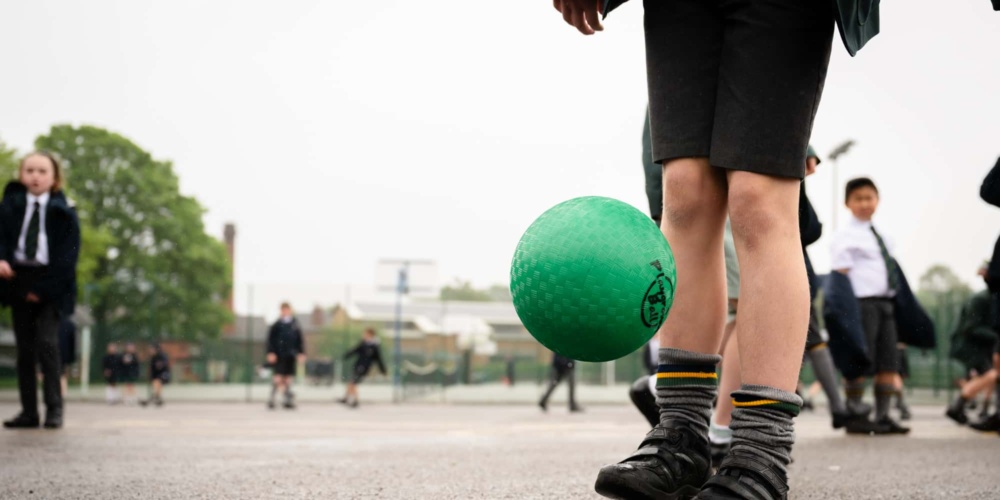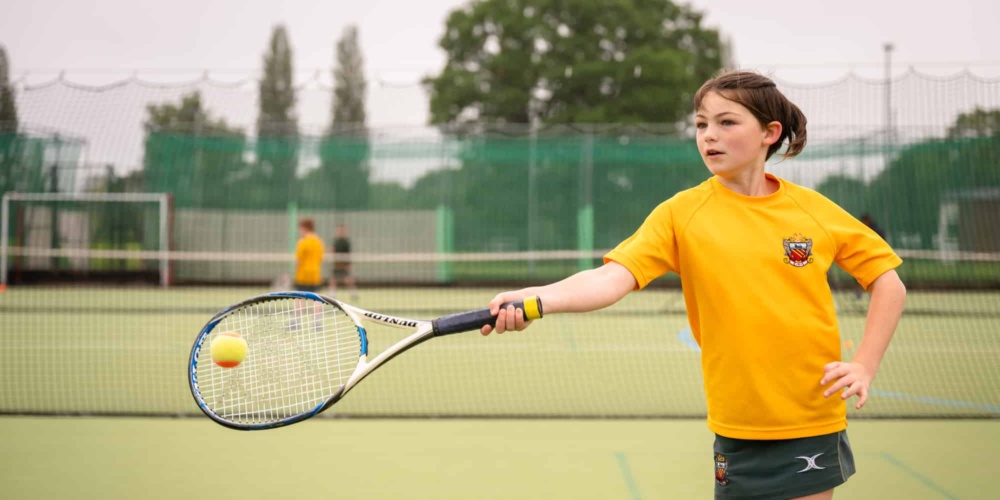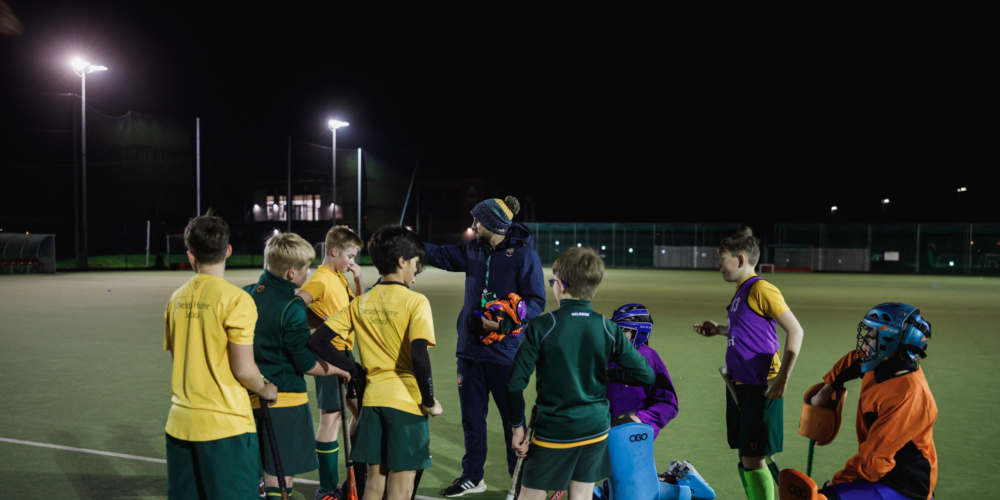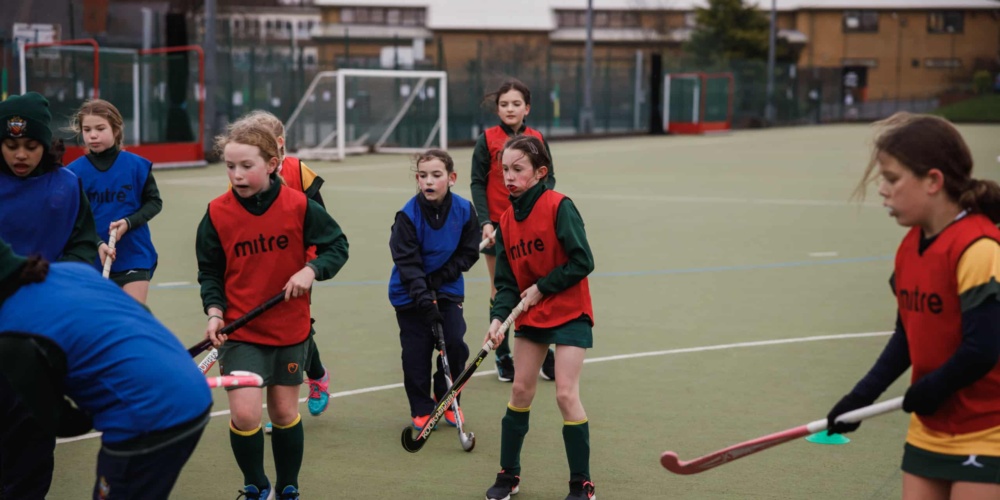The Anxious Generation: How Sports Can Alleviate Childhood Anxiety
By Mr Vincent Weightman, CHS Junior Head
As someone who has experienced the benefits of a life in sport, from childhood through to professional and semi-professional levels, I can attest to the transformative power of physical activity. Now as a parent, I’m hoping to see my own young children benefit from an active lifestyle.
Like many of you I’m sure, I’ve recently read and related to Jonathan Haidt’s insightful book, The Anxious Generation, which explores the rise in anxiety and mental health issues among today’s youth. While Haidt’s work offers valuable insights into this issue, the solutions surely lie in practical interventions that promote physical and mental well-being, such as encouraging our children into healthy, active lifestyles full of self-esteem from beyond the screen.
In the Junior School, we have embraced a participation model where we aim for our children to be engaged in various sports activities. This approach has ensured that they reap the benefits of physical activity, and as a convenient consequence, their enthusiasm has increased levels of competition, leading to success in various sports and age groups.
So, the question is…why do we think it works?
Physical Health: Building Strong Foundations
The most immediate benefit of sport is the improvement in physical health. Regular exercise through sports can combat the sedentary lifestyle that is increasingly common among children. While research conducted by the NHS hasn’t surprised anyone, it has shown that children who participate in sports have lower rates of obesity and are less likely to develop chronic diseases such as Type 2 Diabetes and Heart Disease.
At CHS, we have witnessed firsthand the positive impact of sports on our pupils’ physical health. Through our participation model, we have seen children develop healthier habits, such as being more conscious of healthy choices around eating and sleep while prioritising regular exercise, which has led to improved overall well-being.

Mental Health: A Natural Antidepressant
Engaging in sports can serve as a natural antidepressant, offering significant mental health benefits. Research conducted by the UK Mental Health Foundation has shown that physical activity stimulates the production of endorphins, neurotransmitters that act as natural mood lifters. This can help alleviate symptoms of depression and anxiety, improve mood, and enhance overall emotional well-being.
As parents, I’m sure we have all witnessed firsthand the positive impact of sports on our children’s physical health. By encouraging them to participate in sports, we have seen them develop healthier habits, such as being more conscious of healthy choices around eating and sleep while prioritising regular exercise, leading to improved overall well-being.

Fresh Air: The Outdoors Advantage
Engaging in outdoor sports provides a vital opportunity for children to reconnect with nature and enjoy the simple, yet transformative and often lost benefits of fresh air. Research conducted by the UK’s National Trust has shown that spending time outdoors can reduce stress, improve mood, and enhance cognitive function.
We encourage our students to embrace the outdoors and take advantage of the natural environment. Whether it’s running, playing or competing on the school field or exploring the local countryside during cross-country races, our children benefit from the physical and mental refreshment that comes from being in nature.

Social Skills: Teamwork and Empathy
The development of social skills is a significant advantage of sports. Research conducted by the DfE has shown that participation in team sports is associated with higher levels of empathy and social behaviour among children.
There won’t be a Primary School in the country that doesn’t place a strong emphasis on teamwork and collaboration. However, I would argue that developing these skills within team sport allows our pupils to learn how to communicate effectively, resolve conflicts, and work together towards common goals in a real life situation rather than a scenario in PSHE or Circle Time in direct response to a problem. These experiences not only enhance their social skills but also foster a sense of belonging and camaraderie within the school community.

Integrating Sports into Everyday Life
Given the extensive benefits of sports, particularly against the challenges our children currently face, integrating an active and healthy lifestyle into children’s daily lives is a crucial part of our jobs as school leaders.
Here are the principles we have worked towards to engage all of our children into an active, healthy lifestyle:
- Encourage Exploration: Inspire our children to explore various sports and activities to find what they enjoy most.
- Ensure Accessibility: Prioritise access for children into sport, whether through school programs, community leagues or family activities.
- Make it Fun!: Create positive and enjoyable experiences that foster long-term participation and help your child develop a love for physical activity.
- Model Active Lifestyles: Most importantly, and perfectly timed for summer…lead by example. When we actively participate in and enjoy sports, our children are more likely to follow suit and value physical activity.

Conclusion: A Path to Health and Happiness
Through sports, we can help our children combat the anxieties of modern life and grow into well-rounded, resilient individuals capable of facing the challenges of the future. As we support and promote the integration of sports into the lives of children, we pave the way for a healthier, happier, and more successful generation.


